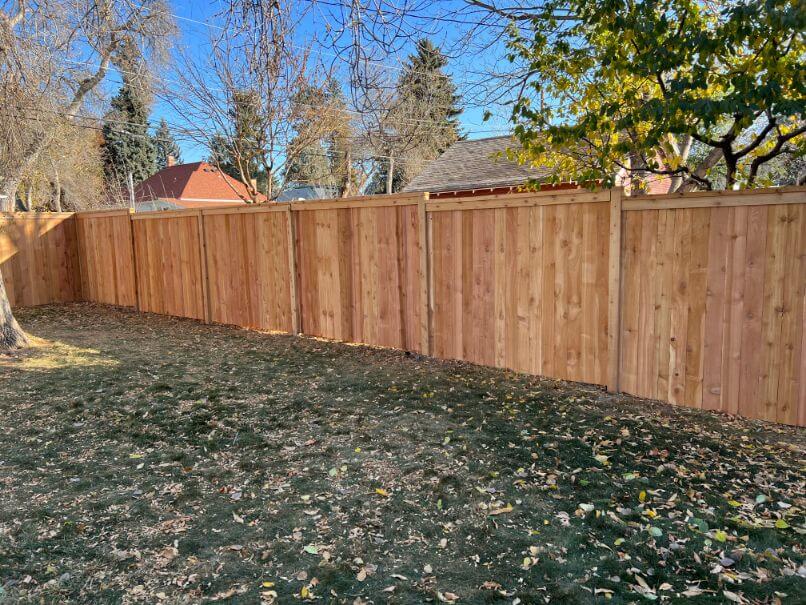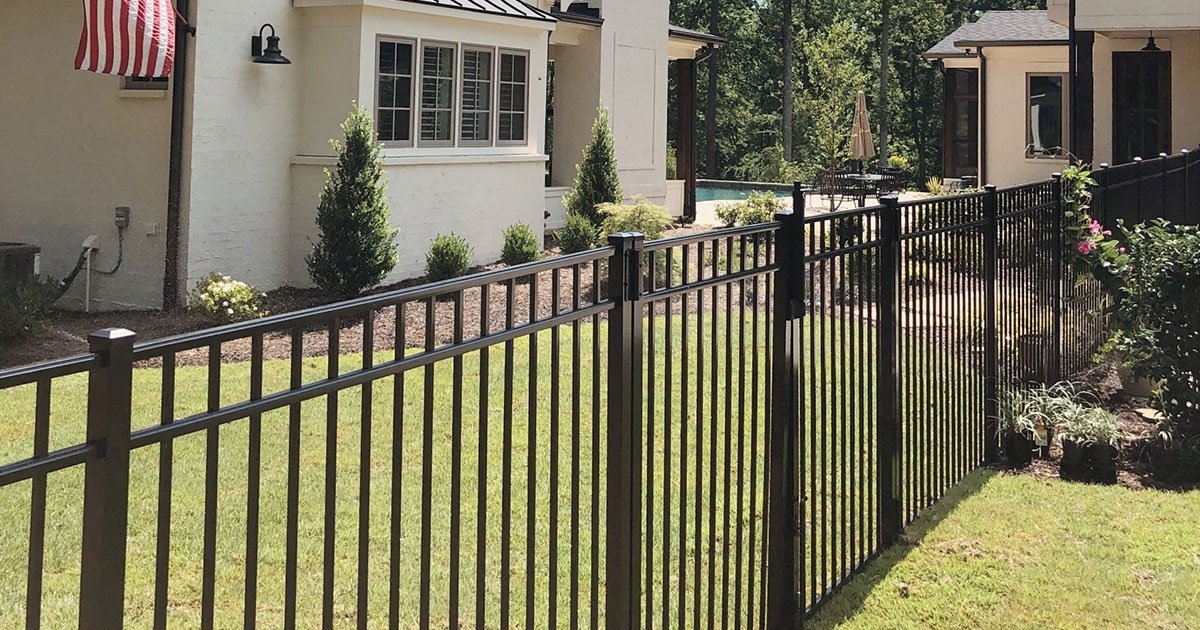All Categories
Featured
Comprehending the permit requirements in your area is important if you're considering mounting a fencing around your building. While constructing a fence may seem like a straightforward DIY task, a number of policies may govern its building and construction depending on where you live. Failing to get the appropriate licenses can cause fines, penalties, or also needing to remove the fencing completely. In this overview, we'll damage down the different authorizations you may need to mount a fence and just how to guarantee your task remains certified with neighborhood regulations.
Why Are Allows Essential for Fencing Installment? Permits are required to make certain that the fencing you develop adheres to local building codes, zoning laws, and safety and security standards. They make sure that the fence won't obstruct energies, website traffic flow, or develop threats for pedestrians.
![]()
Kinds Of Permits You Might Demand. Building Authorization. A structure permit is one of the most usual requirement for setting up a fence. This license ensures that the framework you construct complies with neighborhood safety codes and regulations. You might require to obtain a building permit if your fence goes beyond a specific elevation (typically around 6 feet) The regional authorities will usually review your plans to make certain that your fence is structurally audio and secure.
Zoning Permit. A zoning authorization ensures that your fencing conforms with these policies. Your fencing might need to be set back a particular distance from walkways or building lines.
Homeowners Association (HOA) Approval. If your residential property is part of a house owners association, you might require approval prior to installing a fencing. HOAs typically have strict regulations concerning the type, style, and materials used for fences to keep a consistent look throughout the neighborhood.
Specialty Permits. In many cases, you may need specialty permits based on the place of your property or the nature of your fence. As an example, if your building remains in a disaster area, you might need additional authorizations to guarantee that your fencing does not block drain or water circulation. Likewise, if you prepare to develop a fence near an ecologically secured location, you might need an unique authorization to abide with environmental laws.
![]()
Utility Easements and Utility Firm Authorizations. Before installing a fence, you must examine if your property has an easement. Building a fence within an easement could interfere with utility upkeep or damage underground lines.
How to Determine Which Allows You Need. Get In Touch With Local Authorities. The very first step in establishing the licenses called for is to contact your neighborhood structure department or zoning workplace. They can give certain information regarding what permits are necessary for your area. Numerous cities have online sources or websites where you can examine the requirements or also make an application for an authorization online.
Seek Advice From a Specialist Fence Specialist. A local fencing professional is usually aware of the authorization procedure and regional policies. They can help you browse the needs and guarantee that your project is certified. Numerous specialists likewise handle the permit application process in your place, saving you effort and time.
Review Your Neighborhood's HOA Standards. If you stay in an area governed by an HOA, make certain to examine their standards prior to making an application for any permits. The HOA might call for details styles, products, or height limitations for fencings within the community. Submit your strategies to them for authorization prior to continuing.
![]()
Effects of Not Obtaining a Permit. Mounting a fence without the required licenses can cause significant repercussions. You might deal with fines, be gotten to get rid of the fencing, or be needed to remodel the installation to fulfill code requirements. On top of that, selling your home can be made complex if the fencing does not meet neighborhood regulations. Potential purchasers may think twice to buy a home with an unpermitted fencing, particularly if it's in infraction of zoning legislations.
Verdict. Prior to mounting a fencing on your property, make sure you understand the neighborhood policies and get any required authorizations. Structure licenses, zoning permits, HOA authorizations, and specialized permits all play a vital role in ensuring that your fence is safe, legal, and certified. Taking the time to study and safeguard the proper licenses will certainly conserve you from pricey errors and possible legal problems in the future. Whether you're preparing a privacy fence or a decorative limit, complying with these steps will certainly aid make the installation process smooth and easy.
Why Are Allows Essential for Fencing Installment? Permits are required to make certain that the fencing you develop adheres to local building codes, zoning laws, and safety and security standards. They make sure that the fence won't obstruct energies, website traffic flow, or develop threats for pedestrians.

Kinds Of Permits You Might Demand. Building Authorization. A structure permit is one of the most usual requirement for setting up a fence. This license ensures that the framework you construct complies with neighborhood safety codes and regulations. You might require to obtain a building permit if your fence goes beyond a specific elevation (typically around 6 feet) The regional authorities will usually review your plans to make certain that your fence is structurally audio and secure.
Zoning Permit. A zoning authorization ensures that your fencing conforms with these policies. Your fencing might need to be set back a particular distance from walkways or building lines.
Homeowners Association (HOA) Approval. If your residential property is part of a house owners association, you might require approval prior to installing a fencing. HOAs typically have strict regulations concerning the type, style, and materials used for fences to keep a consistent look throughout the neighborhood.
Specialty Permits. In many cases, you may need specialty permits based on the place of your property or the nature of your fence. As an example, if your building remains in a disaster area, you might need additional authorizations to guarantee that your fencing does not block drain or water circulation. Likewise, if you prepare to develop a fence near an ecologically secured location, you might need an unique authorization to abide with environmental laws.

Utility Easements and Utility Firm Authorizations. Before installing a fence, you must examine if your property has an easement. Building a fence within an easement could interfere with utility upkeep or damage underground lines.
How to Determine Which Allows You Need. Get In Touch With Local Authorities. The very first step in establishing the licenses called for is to contact your neighborhood structure department or zoning workplace. They can give certain information regarding what permits are necessary for your area. Numerous cities have online sources or websites where you can examine the requirements or also make an application for an authorization online.
Seek Advice From a Specialist Fence Specialist. A local fencing professional is usually aware of the authorization procedure and regional policies. They can help you browse the needs and guarantee that your project is certified. Numerous specialists likewise handle the permit application process in your place, saving you effort and time.
Review Your Neighborhood's HOA Standards. If you stay in an area governed by an HOA, make certain to examine their standards prior to making an application for any permits. The HOA might call for details styles, products, or height limitations for fencings within the community. Submit your strategies to them for authorization prior to continuing.

Effects of Not Obtaining a Permit. Mounting a fence without the required licenses can cause significant repercussions. You might deal with fines, be gotten to get rid of the fencing, or be needed to remodel the installation to fulfill code requirements. On top of that, selling your home can be made complex if the fencing does not meet neighborhood regulations. Potential purchasers may think twice to buy a home with an unpermitted fencing, particularly if it's in infraction of zoning legislations.
Verdict. Prior to mounting a fencing on your property, make sure you understand the neighborhood policies and get any required authorizations. Structure licenses, zoning permits, HOA authorizations, and specialized permits all play a vital role in ensuring that your fence is safe, legal, and certified. Taking the time to study and safeguard the proper licenses will certainly conserve you from pricey errors and possible legal problems in the future. Whether you're preparing a privacy fence or a decorative limit, complying with these steps will certainly aid make the installation process smooth and easy.
Latest Posts
Explore WyHy FCU – Low Rates for Members
Published May 27, 25
1 min read
Uncover Cost-Effective Auto Repairs with Montclare’s Limited-Time Service Specials
Published May 23, 25
1 min read
Explore Montclare Auto Repair’s Premier Services and Why Drivers Trust Them
Published May 23, 25
1 min read
More
Latest Posts
Explore WyHy FCU – Low Rates for Members
Published May 27, 25
1 min read
Uncover Cost-Effective Auto Repairs with Montclare’s Limited-Time Service Specials
Published May 23, 25
1 min read
Explore Montclare Auto Repair’s Premier Services and Why Drivers Trust Them
Published May 23, 25
1 min read